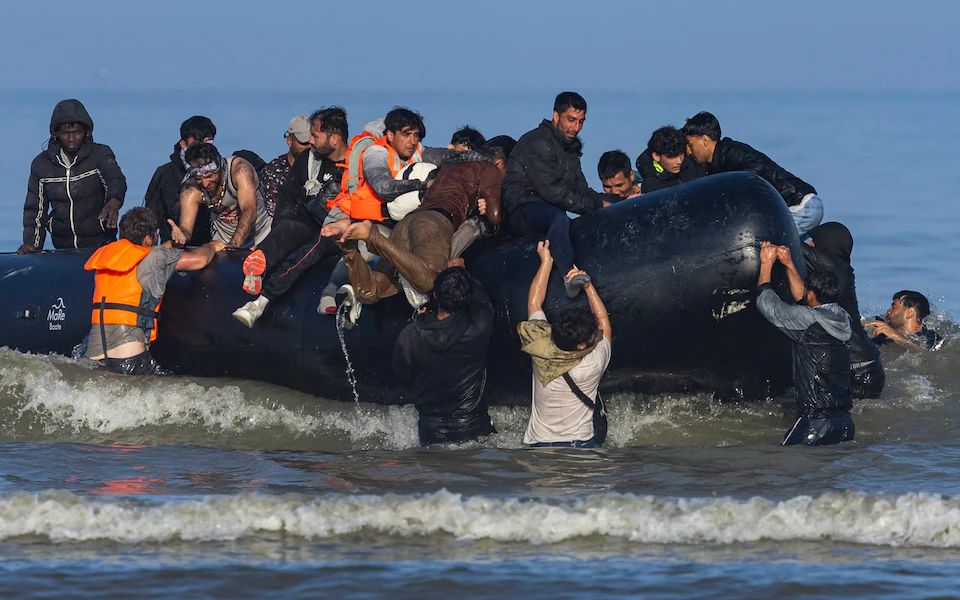Migrants who cross the English Channel in small boats could be barred from claiming asylum in the UK under new plans being developed as part of a returns agreement with France.
The proposed one-in, one-out deal would see the UK return illegal Channel crossers to France, in exchange for accepting a similar number of pre-approved asylum seekers from French territory. The aim is to undercut people smuggling networks by removing the incentive for dangerous and illegal crossings.
According to immigration advisers, enforcing such a system would likely require UK ministers to deny migrants arriving via the Channel the right to claim asylum a move enabled under the 2022 Nationality and Borders Act. The legislation allows the Government to declare a claim inadmissible if the individual passed through a safe third country like France.
The policy shift comes as Channel crossings surge to record levels. By the end of June, 19,982 people had arrived in small boats 48 percent higher than the same period last year and setting a new first-half-year record.
The evolving agreement includes a joint UK-France system to vet and approve asylum seekers for resettlement in the UK, potentially prioritising those with family connections in Britain. However, some experts warn that verifying family ties may be complex and suggest focusing instead on migrants from countries with historically high asylum acceptance rates.
While still in development, the scheme could be trialled as early as next week during the Anglo-French summit, scheduled from July 8 to 10 in London, coinciding with President Emmanuel Macron’s state visit. If successful, the agreement would mark the first bilateral returns arrangement since Brexit ended the UK’s participation in the EU’s Dublin regulation, which previously allowed for returns of asylum seekers to the first EU country they entered.
The UK Government plans to pilot the scheme to resolve any legal or logistical issues, including how quickly inadmissible claims can be processed and whether migrants would be allowed to appeal.
Currently, enforcement remains limited: only 23 migrants whose asylum claims were deemed inadmissible have been removed under the Tories’ post-Brexit rules. Migrants returned to France would be relocated away from the northern coast, with biometric records helping to prevent re-entry attempts.
The plan has drawn scrutiny from EU member states and the European Commission, particularly over concerns that countries such as Italy, Spain, and Greece could face increased pressure if the UK sends back migrants who initially entered the EU through those nations.
“We are in contact with the French and the UK authorities to ensure the necessary clarifications are made,” said a European Commission spokesman.
Meanwhile, France has agreed to a significant policy shift by authorising its elite police forces to intercept migrant taxi boats at sea within 300 metres of its shores. This is a reversal of its previous stance, which avoided such operations for fear of violating maritime safety.
Separately, the UK Government announced it is shutting down two major Afghan refugee resettlement schemes, which have brought over 30,000 people to the UK since the Taliban’s return to power in 2021.
Charities have condemned the move, saying it cuts off a crucial lifeline for Afghans still at risk.
“Four years on from the Taliban takeover, people in Afghanistan are still in need of protection,” said Enver Solomon, chief executive of the Refugee Council. “This sudden closure comes with no clear plan for people at real risk and in need of safety.”



